Venn
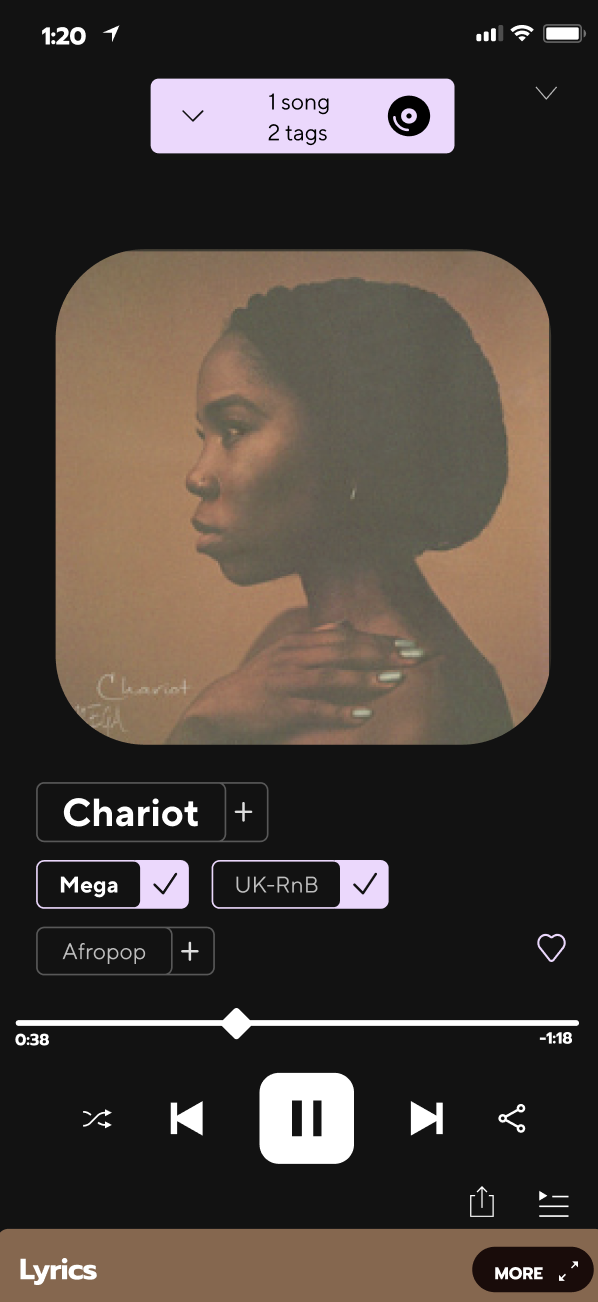
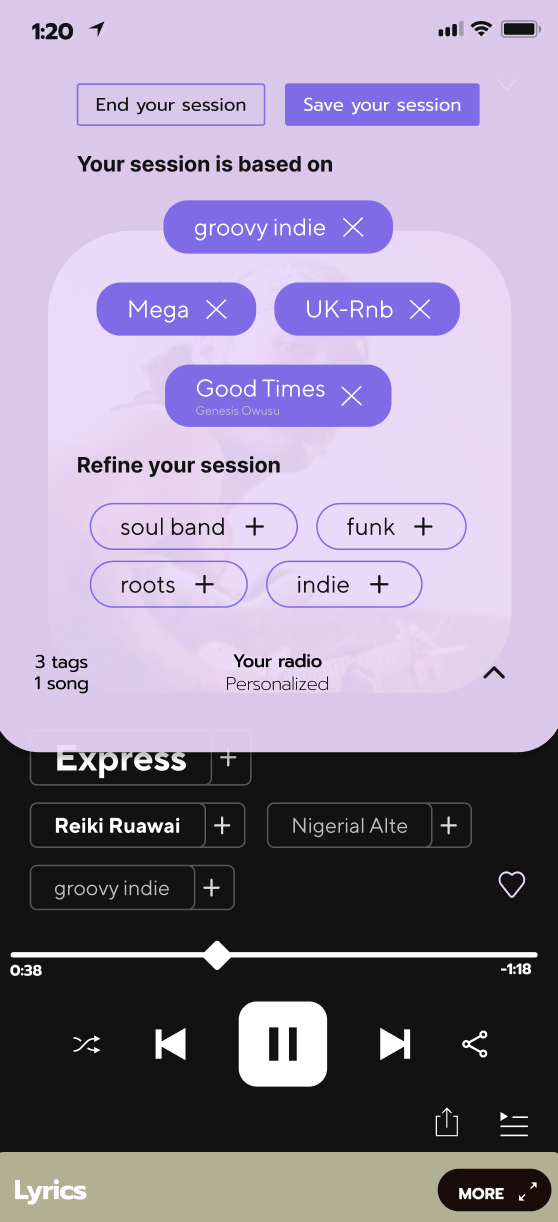
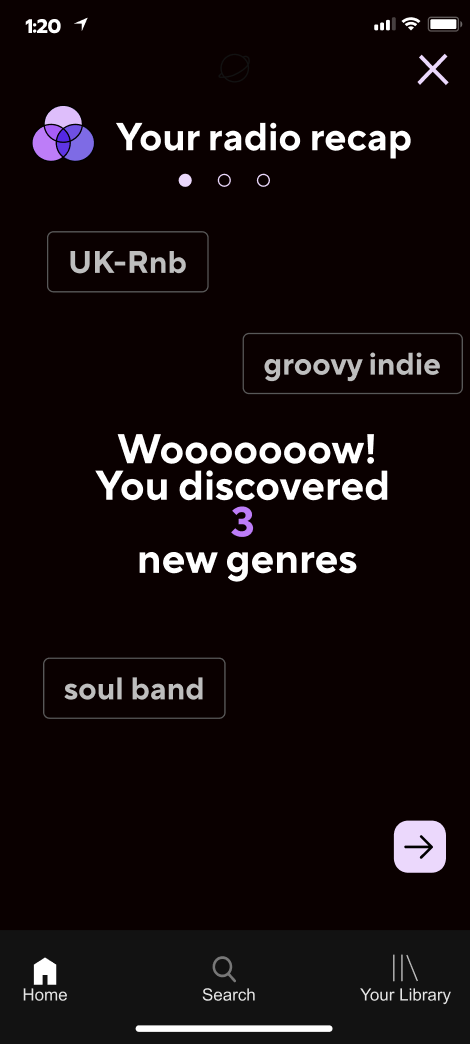
Key Takeaways
This project was done as part of the Interaction Design course at EPFL in Spring 2023. Our project followed four core steps:
1 - Domain research, competitive analysis and Design Problem Statement (DPS).
2 - User research consisting of 6 interviews & post-interview analysis.
3 - Context scenarios, requirements, vision statement, task tree.
4 - Digital Prototype
One important resource was the Spotify Research papers and articles, as they have explored user intentions and how showing personal data helps people reflect on their identities as listeners.
By reading these articles and many more, we synthetized our knowledge in 3 main insights:
1 - Music information: Users require specific details about their music like genre, year, artist, and more to comprehend their preferences and discover new songs.
2 - Feedback changes user behavior: User behavior shifts when exposed to their listening statistics, possibly due to a mismatch with their personality.
3 - Active Discovery: People - in certain situations - have the intention to direct their discovery sessions in a specific direction, like a specific genre or mood.

Persona hypothesis table
We thought of two main behavioural variables: low/high effort in discovery and their musical knowledge.
A high-effort person actively discovers new things in their free time, while a low-effort person prefers passive exploration using recommendation systems. The latter group, called "habitual" users, mostly listens to familiar music.
Some insights we discovered were:
1 - Music discovery is a desire of many users but different people will put more or less effort in it and will use different strategies to reach this goal.
2 - Expressing in words personal music taste can be difficult.
3 - Users sessions can be (roughly) divided into discovery sessions and habitual listening sessions.
The insights we gathered during the research revolve around the concept of tags. The tags are anything that could be used to tailor the recommendation algorithm. It can be a genre, an artist or a song.
Users can add tags from almost any screen to the radio (indicated by the pink toggle at the top). The user can experiment with mixing different tags or add new ones while listening to the music.
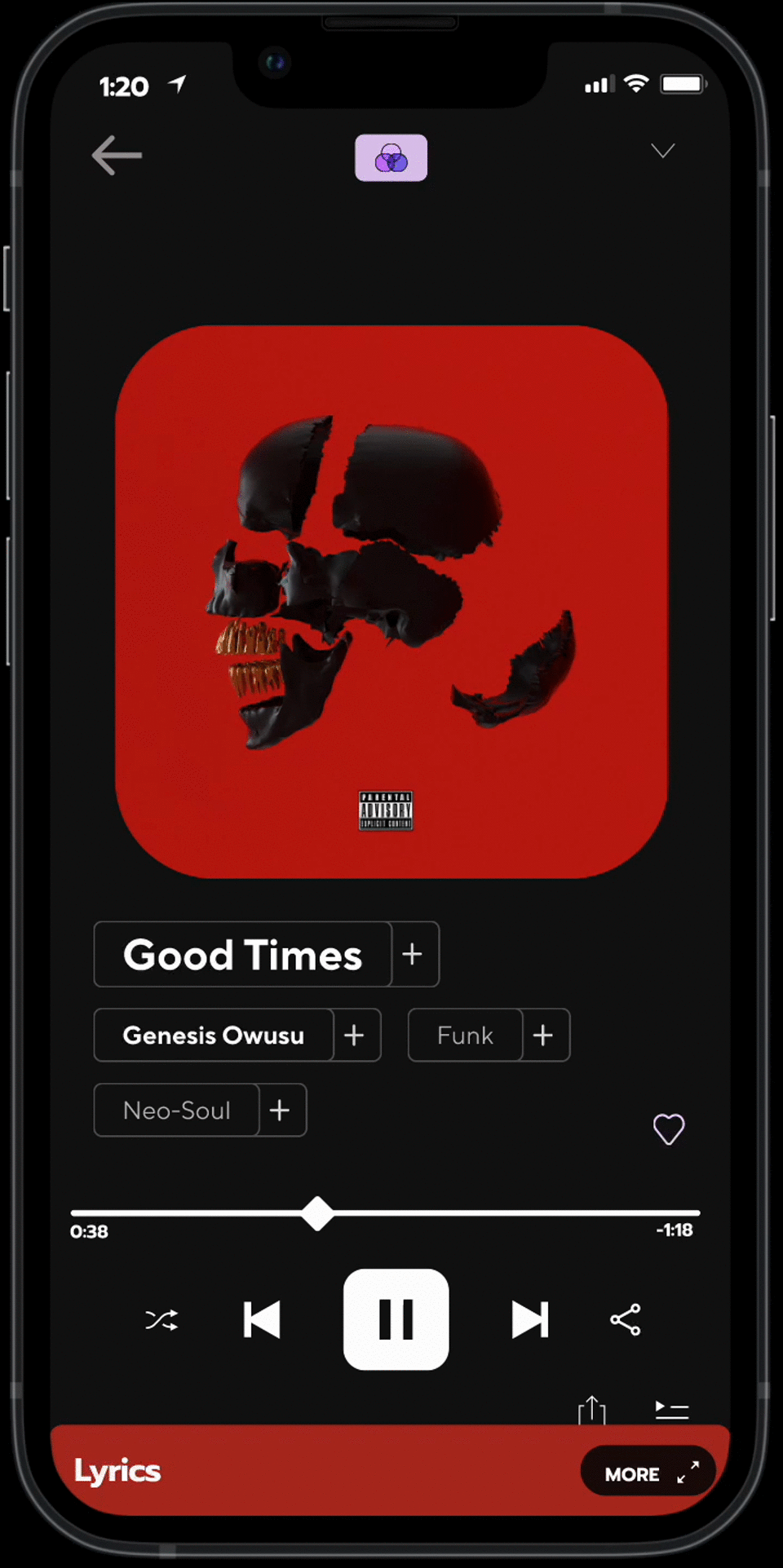
Adding tags enables user interaction with the algorithm
Once at least one tag is added to the radio, users can start playing a radio mix based on those tags.
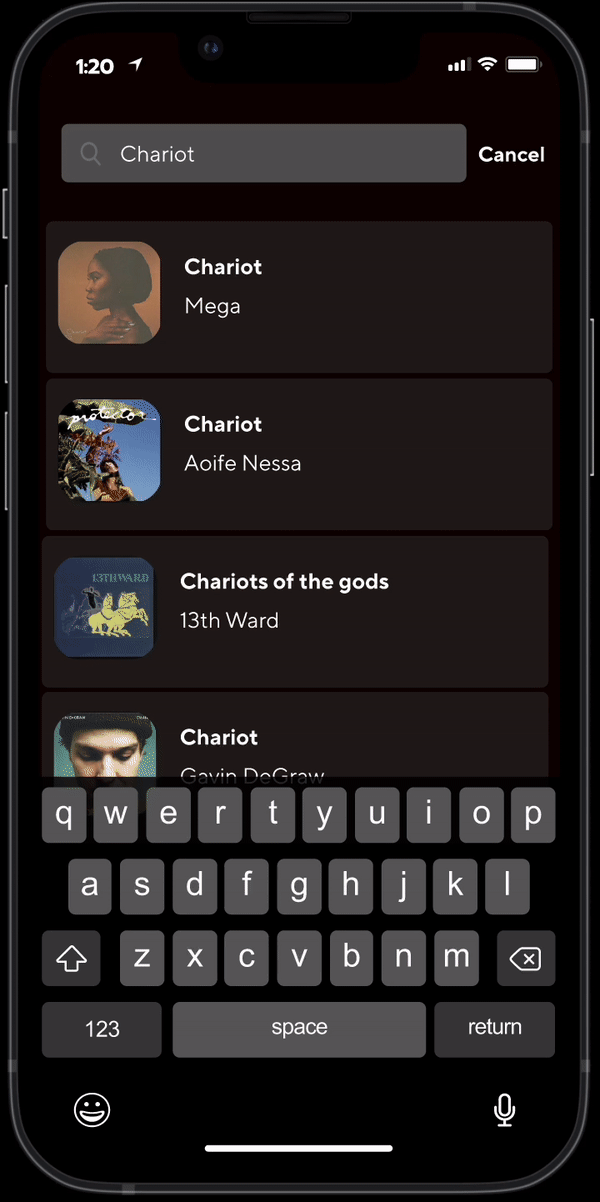
Starting the radio mix
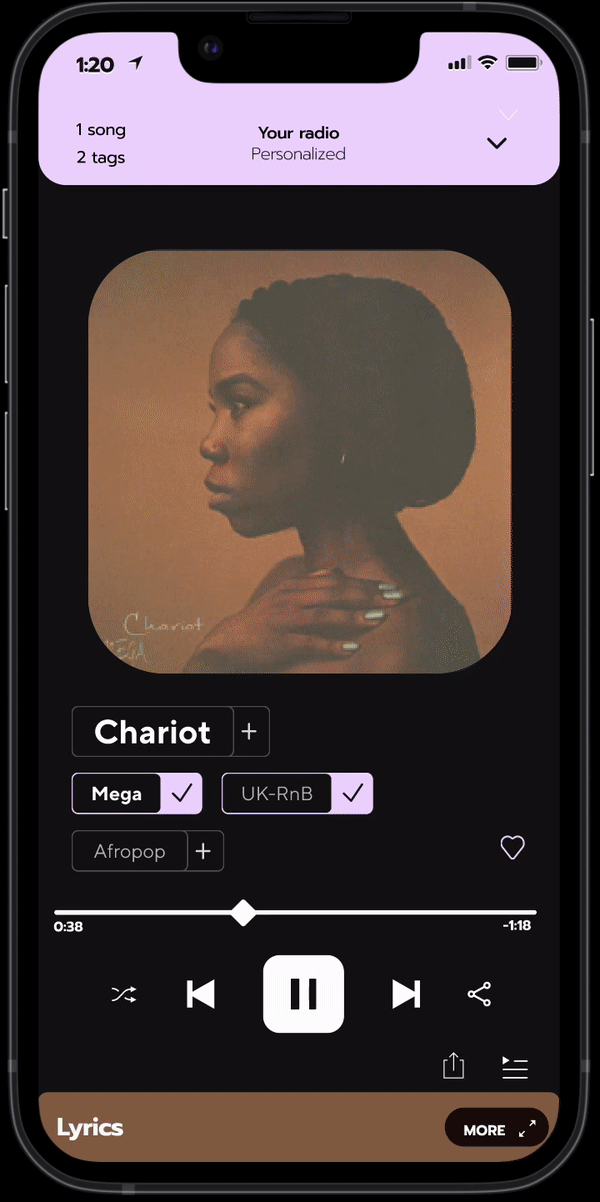
It's possible to always add or remove tags, either the tags that the user wants or from the suggested ones
Concluding the radio session provides users with feedback on their preferences.
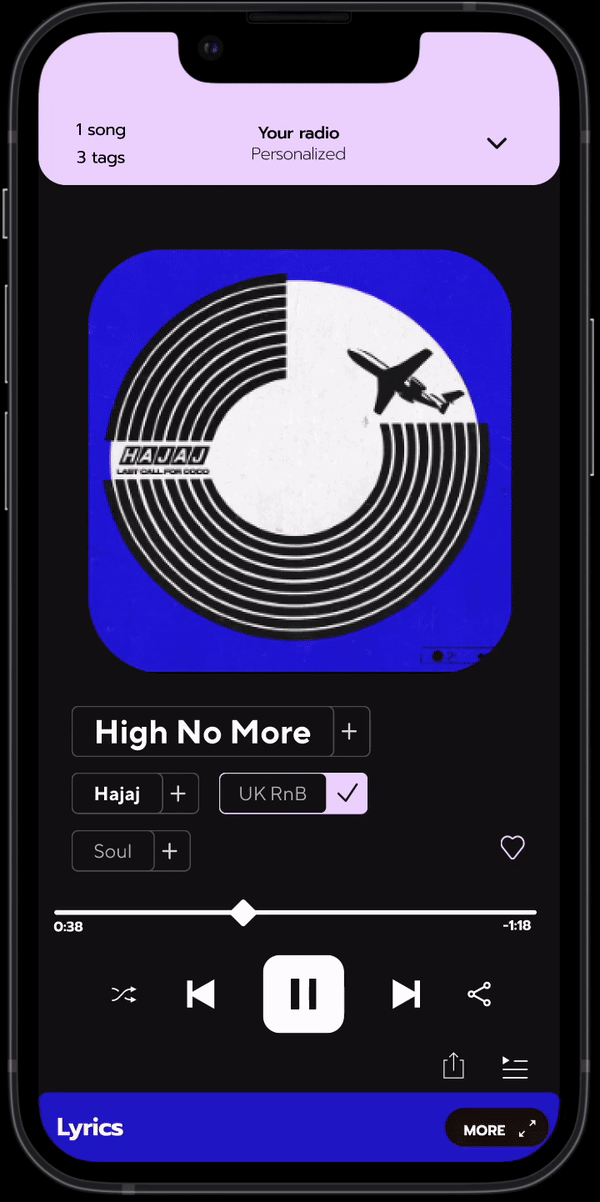
Radio recap
A "mix of tags" can be saved as, what we called, a Venn. It can be played next time the user wants to listen to a mix with the same tags.
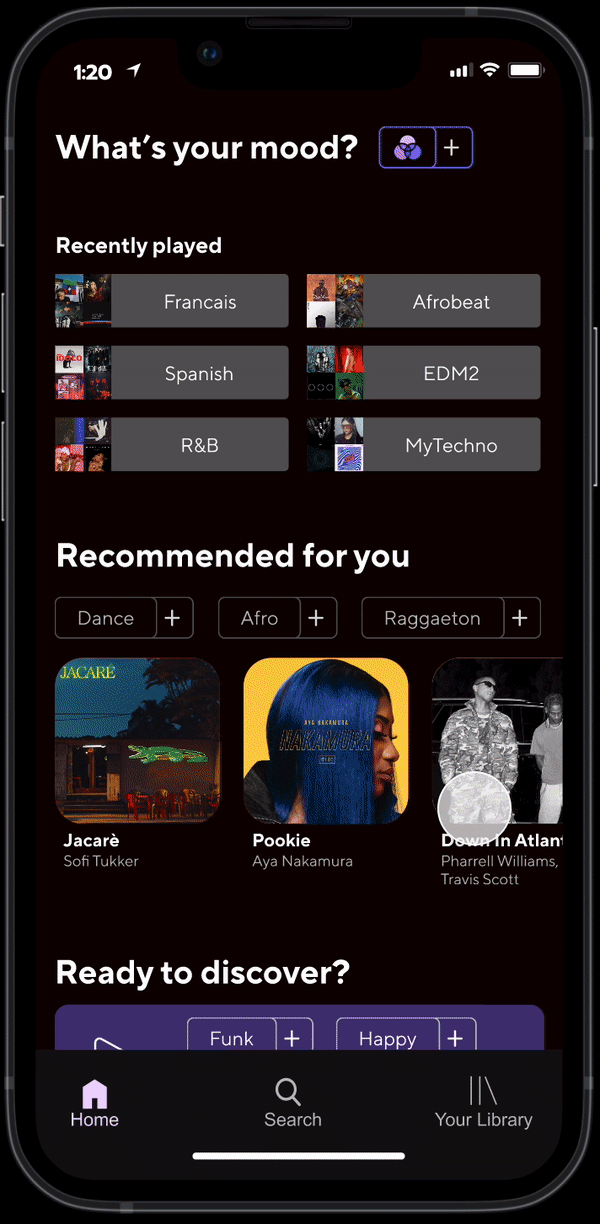
Starting a Venn
As this could be not a feature for everyone, users can eliminate tags from the entire app through the settings. Overall, the application's curation involves human input for genre hierarchy and taxonomy. Each song is associated with genres, which artists can directly add.
Delving into domain research and competitive analysis was truly engaging. Exploring numerous papers and articles on Spotify Research not only expanded my knowledge but also revealed my own Spotify usage patterns.
The most significant challenge was to create a design solution that would materialize the insights gathered from research and the user interviews.
I was happily surprised to see similar features on Spotify's latest update. They started using the hashtags in the new feature "Explore your genres" in the Search page.
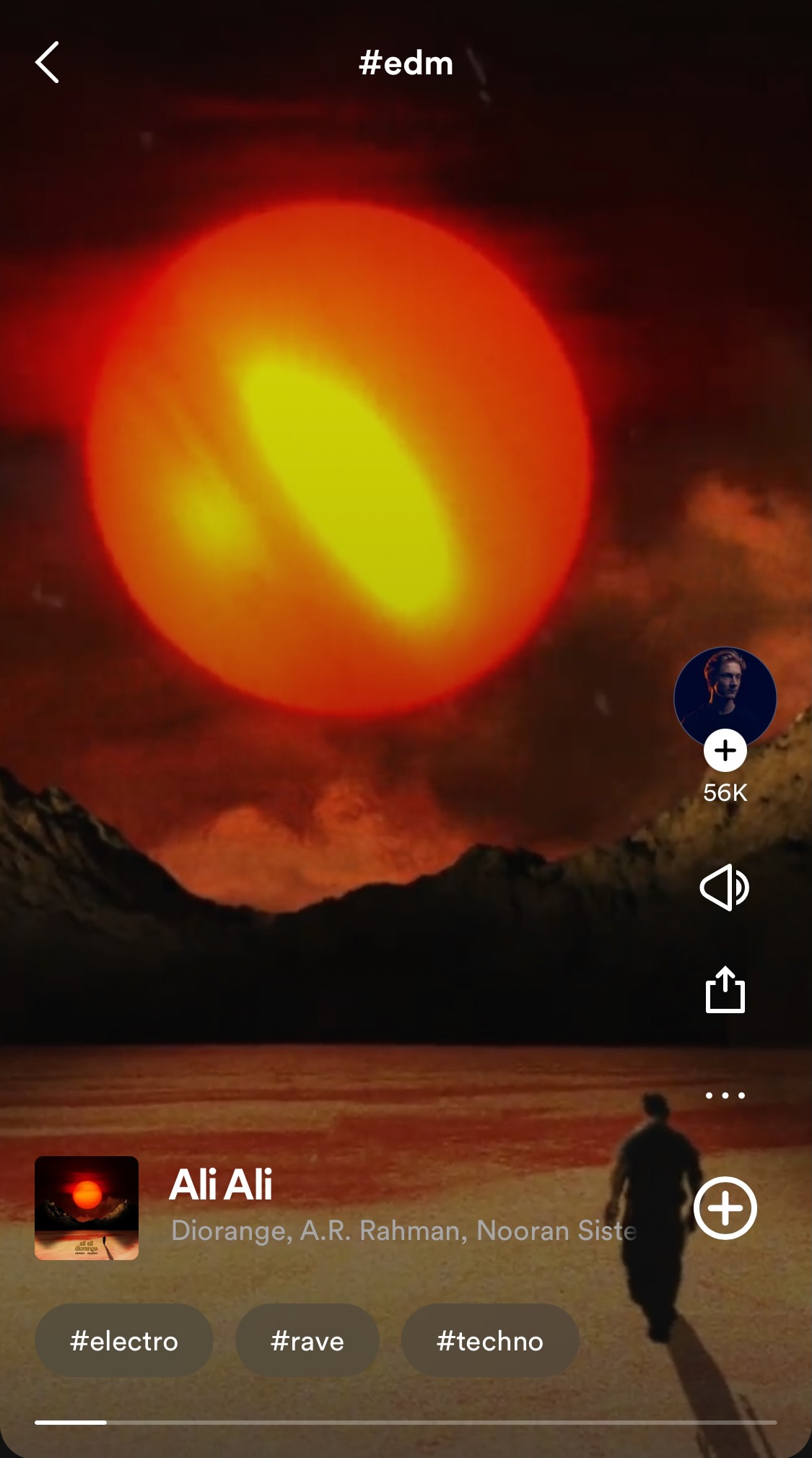
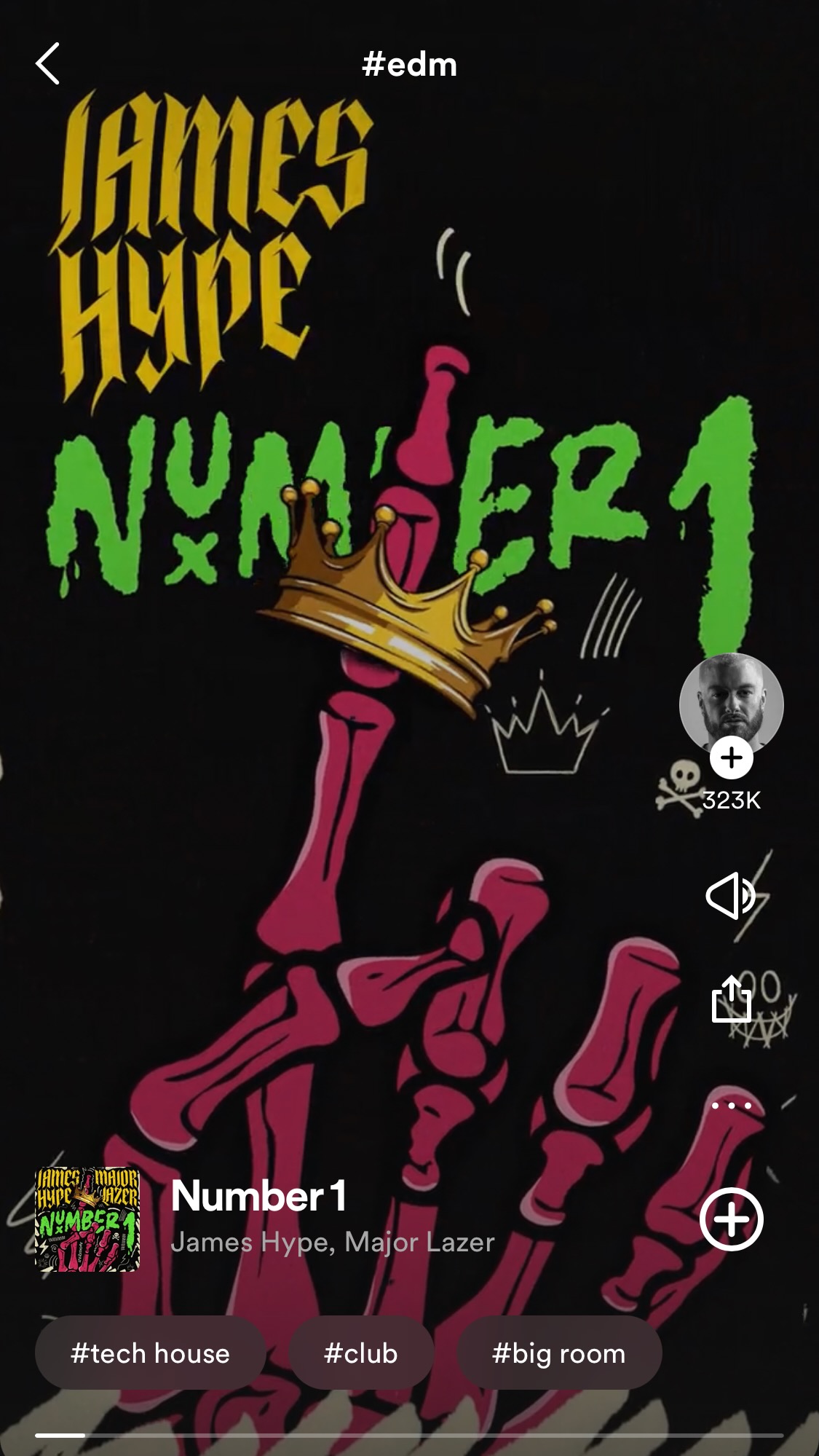
Spotify's new "Explore your genres" page
Team: Davide Romano, Ben Kriesel, Maelys Billon
Author: Davide Romano